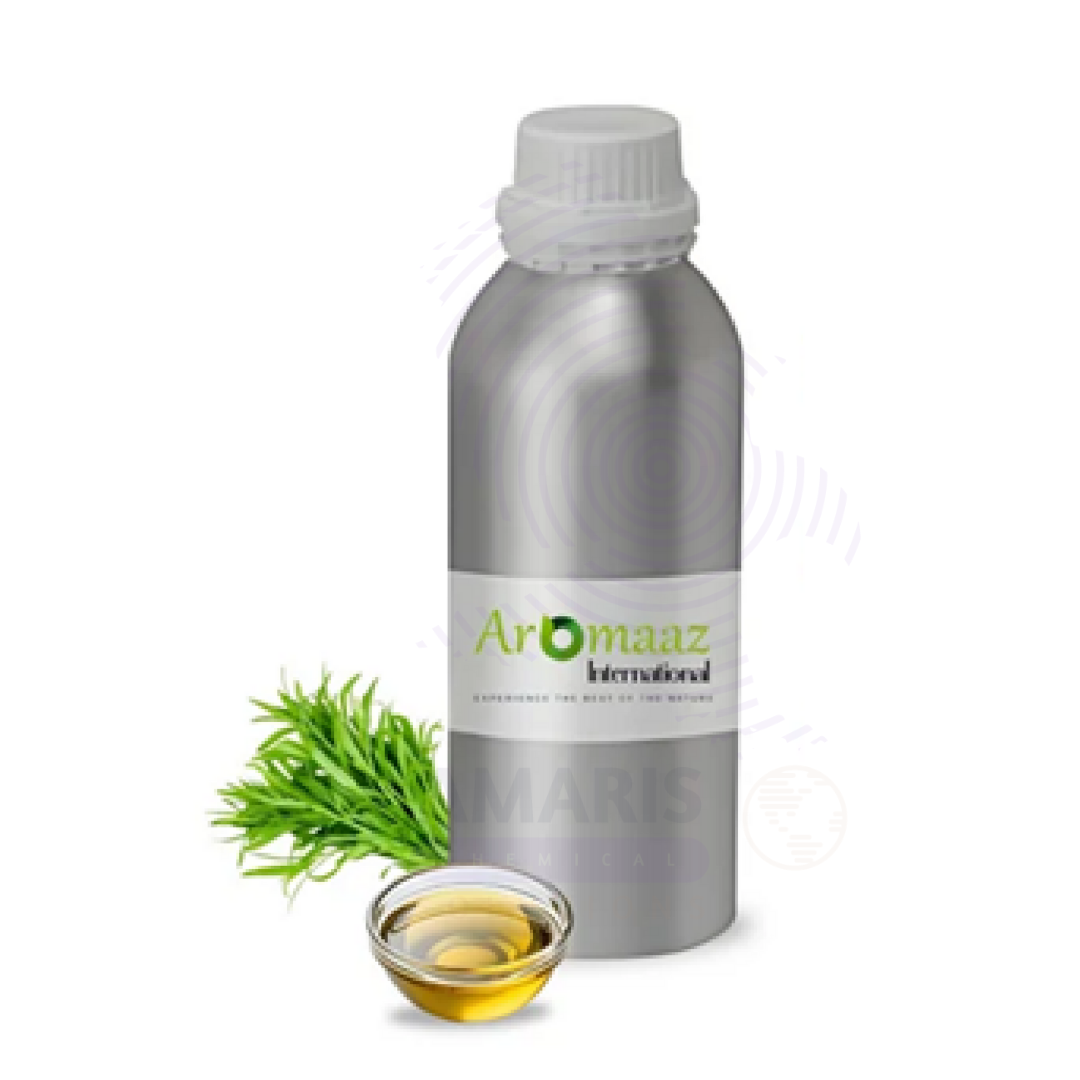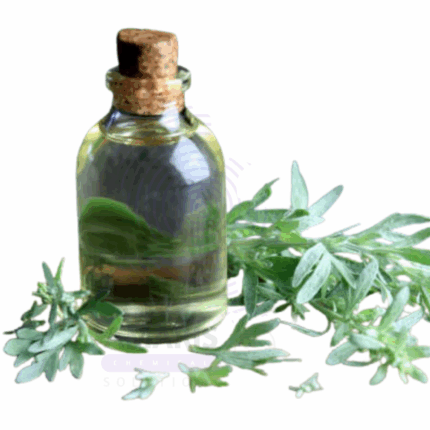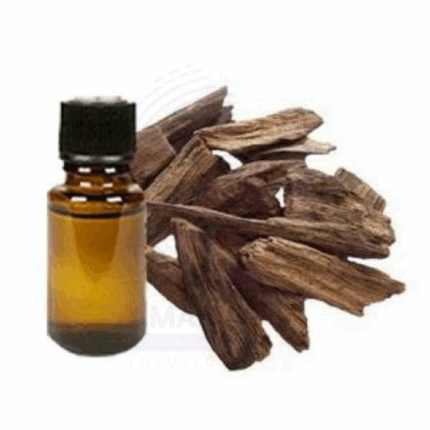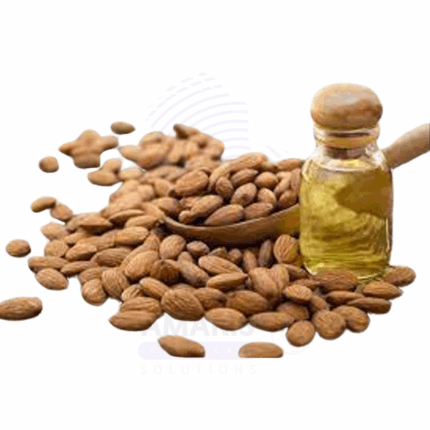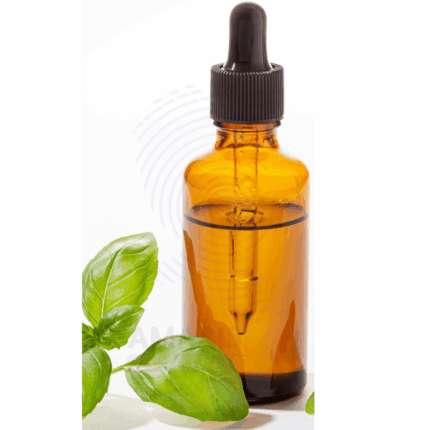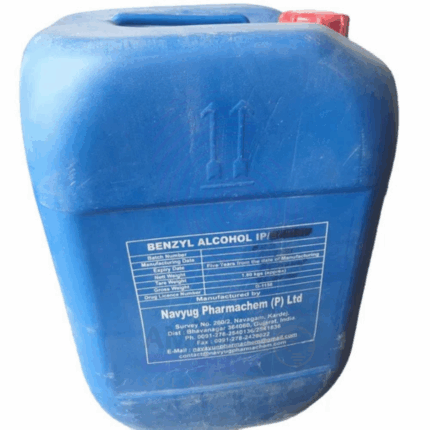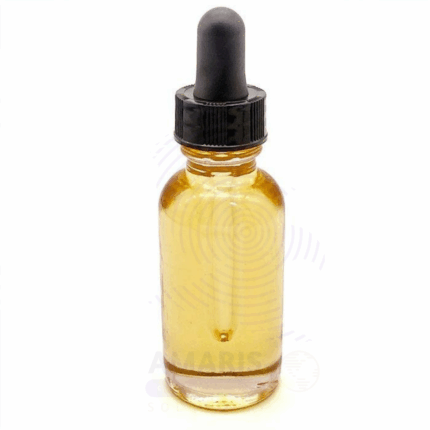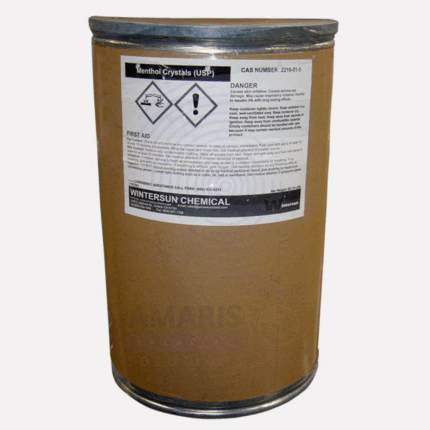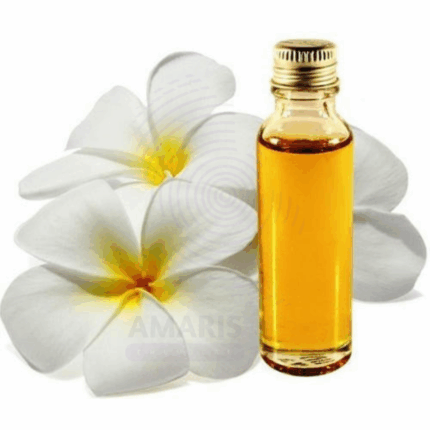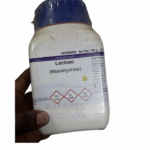
Lactose Monohydrate Extra Pure
$ 17.40 Original price was: $ 17.40.$ 17.32Current price is: $ 17.32.
Tarragon Essential Oil
Whatsapp Order
Tarragon Essential Oil is a fragrant, aromatic oil extracted from the leaves and flowering tops of the Artemisia dracunculus plant, commonly known as tarragon. It is prized for its sweet, herbaceous, slightly spicy aroma and is widely used in aromatherapy, perfumery, flavoring, and traditional medicine. The oil contains active compounds such as estragole and methyl eugenol, which contribute to its characteristic scent and therapeutic properties.
Description
Table of Contents
Toggle
Tarragon Essential Oil
Primary Uses
- Aromatherapy & Wellness
- Relaxation & Stress Relief: Used in diffusers and massage oils to promote calmness and reduce anxiety.
- Digestive Aid: Employed in traditional remedies for digestive discomfort and to stimulate appetite.
- Flavoring Industry
- Food & Beverage Flavoring: Adds a distinctive sweet and spicy note to culinary dishes, sauces, and beverages.
- Herbal Extracts: Used as a natural flavoring agent in herbal teas and extracts.
- Cosmetic & Personal Care
- Fragrance Component: Incorporated in perfumes, soaps, and lotions for its pleasant aroma.
- Skin Care: Used in small quantities for its antimicrobial and soothing effects.
Secondary Uses
- Pharmaceuticals
- Traditional Medicine: Utilized in herbal formulations for its anti-inflammatory and antimicrobial properties.
- Household Products
- Natural Insect Repellent: Occasionally used in natural insect repellents and air fresheners.
KEY PRODUCT FEATURES
1. Basic Identification Attributes
- Chemical Name (IUPAC): Mixture of compounds including estragole (methyl chavicol) and methyl eugenol
- Common/Trade Name: Tarragon Essential Oil
- CAS Number: 8007-42-3
- HS Code: 3301.29.00
- Synonyms: Artemisia dracunculus oil, Estragon oil
2. Physical & Chemical Properties
- Physical State: Clear to pale yellow liquid
- Color & Odor: Pale yellow; sweet, herbaceous, slightly spicy aroma
- Boiling Point: Approx. 220–240 °C (varies with composition)
- Solubility: Insoluble in water; soluble in alcohol and oils
- Density: Approx. 0.89–0.93 g/cm³
3. Safety & Hazard Attributes
- GHS Classification: May cause skin sensitization; irritant in concentrated form
- Toxicity: Use with caution due to estragole content; avoid in pregnancy and in large doses
- Exposure Limits: No specific limits; use in well-diluted form
4. Storage & Handling Attributes
- Storage Conditions: Store in a cool, dark, airtight container away from heat and light
- Container Type: Amber glass bottles or metal containers
- Shelf Life: 12–24 months when stored properly
- Handling Precautions: Avoid direct skin contact with undiluted oil; use gloves and avoid inhalation of concentrated vapors
5. Regulatory & Compliance Attributes
- Complies with IFRA standards for fragrance oils
- Produced under Good Manufacturing Practices (GMP) for essential oils
- Suitable for use in cosmetics and flavorings within regulatory limits
6. Environmental & Health Impact
- Biodegradability: Readily biodegradable
- Ecotoxicity: Low to moderate toxicity to aquatic life; avoid environmental release
- Bioaccumulation: Not significant
SAFETY HANDLING PRECAUTIONS
Safety Handling Precautions
- PPE Required: Gloves and eye protection recommended when handling neat oil
- Handling Guidelines: Use in well-ventilated areas; dilute before topical application
- Storage Measures: Keep containers tightly closed and protected from sunlight
First Aid Measures
- Inhalation: Move to fresh air if respiratory irritation occurs
- Skin Contact: Wash with soap and water; seek medical advice if rash or irritation develops
Eye Contact: Rinse immediately with plenty of water; seek medical attention if irritation persists - Ingestion: Do not induce vomiting; seek immediate medical help
Firefighting Measures
- Fire Hazards: Flammable liquid and vapor
- Extinguishing Media: Use foam, dry chemical, or CO₂ extinguishers
- Hazardous Combustion Products: Carbon oxides and other toxic gases
Related products
Absinth Oil
Absinth Oil, also known as Wormwood Essential Oil, is a highly aromatic essential oil extracted through steam distillation from the leaves and flowering tops of the Artemisia absinthium plant. Native to Europe and Asia and known historically for its use in absinthe liqueur, this oil features a sharp, bitter, herbaceous aroma with a green and slightly medicinal edge. Rich in thujone, chamazulene, and other bioactive compounds, Absinth Oil is known for its antimicrobial, anti-inflammatory, and digestive-stimulating properties.
While traditionally associated with herbal medicine and ritualistic use, modern applications of Absinth Oil span personal care, pharmaceuticals, and natural pest repellents. Due to its intensity and potential toxicity in high concentrations, it is used in very controlled amounts in fragrance and therapeutic blends. It is valued for its distinctive scent and potent botanical properties, particularly in cosmetics, aromatherapy, and natural cleaning formulations.
Agarwood oil
Agarwood oil, also known as Oudh Oil, is a rare and luxurious essential oil derived from the heartwood of the Aquilaria tree, primarily found in Southeast Asia. This dark, viscous oil is extracted through steam distillation of infected wood—formed when the tree produces a dark, aromatic resin in response to fungal attack. The resulting oil is one of the most precious and complex natural fragrances in the world, known for its deep, woody, smoky, and slightly sweet aroma.
Agarwood Oil is widely revered in perfumery, spiritual rituals, and traditional medicine. Its rich olfactory profile and fixative qualities make it an indispensable ingredient in high-end perfumes and incense. Additionally, it is used in skin care, wellness therapies, and emotional balancing practices due to its grounding, calming, and meditative effects. Agarwood Oil is produced in extremely limited quantities, which adds to its exclusivity and value.
Almond Bitter Oil
Almond Bitter Oil, derived from the kernels of bitter almonds (Prunus amygdalus var. amara), is an essential oil known for its sharp, nutty, and marzipan-like aroma. This oil is produced through steam distillation of crushed bitter almond kernels and contains a naturally occurring compound called benzaldehyde, which gives it its characteristic scent. In purified form (free of hydrogen cyanide), bitter almond oil is used in fragrance, flavoring, and pharmaceutical applications.
Due to its potent aroma and biochemical properties, it is widely used in perfumery, baked goods flavoring (in controlled quantities), aromatherapy, and traditional topical remedies. It is important to distinguish between natural bitter almond oil, which must be detoxified, and synthetic benzaldehyde, which is commonly used as a substitute in commercial formulations.
Basil sweet oil
Basil Sweet Oil is a high-quality essential oil extracted via steam distillation from the leaves and flowering tops of the Ocimum basilicum plant, known as Sweet Basil. This chemotype is rich in linalool and low in estragole, making it gentler and more suitable for topical use than other basil varieties. With a fresh, sweet, herbaceous, and slightly floral aroma, Basil Sweet Oil is highly valued in cosmetics, personal care, aromatherapy, and natural wellness formulations.
This essential oil is known for its clarifying, uplifting, and antiseptic properties. It supports mental clarity, soothes muscular tension, and offers anti-inflammatory and antimicrobial benefits for skin and scalp. Basil Sweet Oil is especially preferred in formulations targeting sensitive skin and emotional well-being.
Benzyl Alcohol
Benzyl Alcohol is an aromatic alcohol with a mild pleasant odor and clear, colorless liquid appearance. It serves as a versatile solvent, preservative, and intermediate in chemical synthesis. Benzyl Alcohol is widely used across pharmaceuticals, cosmetics, paints, coatings, and as a bacteriostatic agent in injectable drugs. Its relatively low toxicity and good solvent properties make it valuable in both industrial and consumer products.
Calmintha Oil
Calmintha Oil is an aromatic essential oil derived through steam distillation of the aerial parts of Calamintha nepeta or closely related species within the Calamintha genus. Also known as lesser calamint, Calmintha is a herbaceous plant known for its minty, slightly camphoraceous fragrance with subtle floral undertones. The oil is rich in compounds such as pulegone, menthone, and isomenthone, which contribute to its invigorating, clarifying, and antimicrobial properties.
Used in traditional herbal medicine, perfumery, and aromatherapy, Calmintha Oil offers refreshing aromatic effects and is frequently utilized in respiratory blends, skin formulations, and natural cleaning products. Due to its high pulegone content, topical use should be limited and well-diluted.
Menthol crystals
Menthol Crystals are natural organic compounds derived from peppermint or other mint oils, presenting as clear or white crystalline solids with a strong, cooling mint aroma. They possess analgesic, antiseptic, and flavoring properties. Widely used in pharmaceuticals, cosmetics, food, and personal care products, menthol crystals provide a refreshing cooling sensation and fragrance, enhancing product efficacy and consumer appeal.
Michelia Flower Oil
Michelia Flower Oil is an essential oil extracted through steam distillation or solvent extraction from the flowers of Michelia species (e.g., Michelia champaca, Michelia alba). Known for its rich, floral, and slightly fruity aroma, it is widely used in perfumery, aromatherapy, and traditional medicine. The oil is prized for its therapeutic properties and as a natural fragrance ingredient.


 Preservatives(food)
Preservatives(food) Flavor Enhancers
Flavor Enhancers Acidulants
Acidulants Sweeteners
Sweeteners Antioxidants
Antioxidants Colorants(food)
Colorants(food) Nutraceutical Ingredients (food)
Nutraceutical Ingredients (food) Nutrient Supplements
Nutrient Supplements Emulsifiers
Emulsifiers
 Collectors
Collectors Dust Suppressants
Dust Suppressants Explosives and Blasting Agents
Explosives and Blasting Agents Flocculants and Coagulants
Flocculants and Coagulants Frothers
Frothers Leaching Agents
Leaching Agents pH Modifiers
pH Modifiers Precious Metal Extraction Agents
Precious Metal Extraction Agents
 Antioxidants(plastic)
Antioxidants(plastic) Colorants (Pigments, Dyes)
Colorants (Pigments, Dyes) Fillers and Reinforcements
Fillers and Reinforcements Flame Retardants
Flame Retardants Monomers
Monomers Plasticizers
Plasticizers Polymerization Initiators
Polymerization Initiators Stabilizers (UV, Heat)
Stabilizers (UV, Heat)
 Antifoaming Agents
Antifoaming Agents Chelating Agents
Chelating Agents Coagulants and Flocculants
Coagulants and Flocculants Corrosion Inhibitors
Corrosion Inhibitors Disinfectants and Biocides
Disinfectants and Biocides Oxidizing Agents
Oxidizing Agents pH Adjusters
pH Adjusters Scale Inhibitors( water)
Scale Inhibitors( water)
 Antioxidants(cosmetic)
Antioxidants(cosmetic) Emollients
Emollients Fragrances and Essential Oils
Fragrances and Essential Oils Humectants
Humectants Preservatives
Preservatives Surfactants(cosmetic)
Surfactants(cosmetic) Thickeners
Thickeners UV Filters
UV Filters
 Fertilizers
Fertilizers Soil Conditioners
Soil Conditioners Plant Growth Regulators
Plant Growth Regulators Animal Feed Additives
Animal Feed Additives Biostimulants
Biostimulants Pesticides (Herbicides, Insecticides, Fungicides)
Pesticides (Herbicides, Insecticides, Fungicides)
 Active Pharmaceutical Ingredients (APIs)
Active Pharmaceutical Ingredients (APIs) Excipients
Excipients Solvents(pharmaceutical)
Solvents(pharmaceutical) Antibiotics
Antibiotics Antiseptics and Disinfectants
Antiseptics and Disinfectants Vaccine Adjuvants
Vaccine Adjuvants Nutraceutical Ingredients (pharmaceutical)
Nutraceutical Ingredients (pharmaceutical) Analgesics & Antipyretics
Analgesics & Antipyretics
 Analytical Reagents
Analytical Reagents Solvents(lab)
Solvents(lab) Chromatography Chemicals
Chromatography Chemicals Spectroscopy Reagents
Spectroscopy Reagents microbiology-and-cell-culture-reagents
microbiology-and-cell-culture-reagents Molecular Biology Reagents
Molecular Biology Reagents Biochemical Reagents
Biochemical Reagents Inorganic and Organic Standards
Inorganic and Organic Standards Laboratory Safety Chemicals
Laboratory Safety Chemicals Specialty Laboratory Chemicals(Special Laboratory Equipment)
Specialty Laboratory Chemicals(Special Laboratory Equipment)
 Demulsifiers
Demulsifiers Hydraulic Fracturing Fluids
Hydraulic Fracturing Fluids Scale Inhibitors(oil)
Scale Inhibitors(oil) Surfactants(oil)
Surfactants(oil) Drilling Fluids
Drilling Fluids
 Dyes and Pigments
Dyes and Pigments Bleaching Agents
Bleaching Agents Softening Agents
Softening Agents Finishing Agents
Finishing Agents Antistatic Agents
Antistatic Agents
 Admixtures
Admixtures Waterproofing Agents
Waterproofing Agents Sealants and Adhesives
Sealants and Adhesives Curing Compounds
Curing Compounds Concrete Repair Chemicals
Concrete Repair Chemicals Anti-Corrosion Coatings
Anti-Corrosion Coatings
 Surfactants(cleaning)
Surfactants(cleaning) Builders
Builders Enzymes
Enzymes Solvents (Cleaning)
Solvents (Cleaning) Fragrances
Fragrances
 Electronic Chemicals
Electronic Chemicals Catalysts
Catalysts Lubricants
Lubricants Photographic Chemicals
Photographic Chemicals Refrigerants
Refrigerants Automotive chemicals
Automotive chemicals Pyrotechnic Chemicals
Pyrotechnic Chemicals
 Biodegradable Surfactants
Biodegradable Surfactants Bio-based Solvents
Bio-based Solvents Renewable Polymers
Renewable Polymers Carbon Capture Chemicals
Carbon Capture Chemicals Wastewater Treatment Chemicals
Wastewater Treatment Chemicals
 Pigments
Pigments Solvents(paint)
Solvents(paint) Specialty Coatings
Specialty Coatings Binders/Resins
Binders/Resins Additives
Additives Driers
Driers Anti-Corrosion Agents
Anti-Corrosion Agents Functional Coatings
Functional Coatings Application-Specific Coatings
Application-Specific Coatings
 Leavening Agents
Leavening Agents Dough Conditioners
Dough Conditioners Flour Treatments
Flour Treatments Fat Replacers
Fat Replacers Decoratives
Decoratives Preservatives(baking)
Preservatives(baking)
 Plasticizers & Softeners
Plasticizers & Softeners Reinforcing Agents
Reinforcing Agents Adhesion Promoters
Adhesion Promoters Vulcanizing Agents
Vulcanizing Agents Antidegradants
Antidegradants Blowing Agents
Blowing Agents Fillers & Extenders
Fillers & Extenders Accelerators & Retarders
Accelerators & Retarders